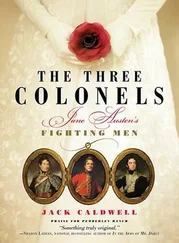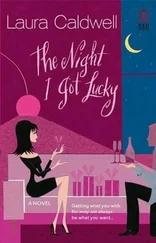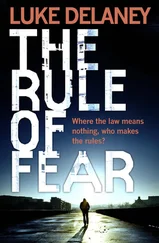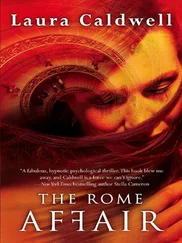It's really the diary? I ask as soon as he's gone. Just listen, Paul says.
He refocuses on the little book and begins reading out loud. The translation proceeds haltingly at first, Paul struggling with the Ligurian dialect, the language of Columbus's Genoa, fused with stray French-sounding words. But gradually his pace improves.
High seas last night. One ship… broken on the shore. Sharks washed up, one very large. French sailors go to the brothels. A Moorish… corsair?… seen in close waters.
He turns several pages, reading at random.
Fine day. Maria is recovering. Her urine is improving, the doctor says. Expensive quack! The… herbalist… says he will treat her for half the price. And twice as quickly! Paul pauses, staring at the page. Bat dung , he continues, will cure anything .
I interrupt. What does this have to do with the Hypnerotomachia ?''
But he keeps shuttling through the pages.
A Venetian captain drank too much last night and began boasting. Our weakness at Fornovo. The old defeat at Portofino. The men brought him to the… shipyard… and strung him from a tall mast. He is still hanging there this morning .
Before I can repeat my question, Paul's eyes go wide.
The same man from Rome came again last night, he reads. Dressed more richly than a duke. No one knows his business here. Why has he come? I ask others. Those who know anything will not speak. A. ship of his is coming to port, the rumor goes. He has come to see that it arrives safely.
I sit forward in my chair. Paul flips the page and continues.
What is of such importance that a man like this comes to see it? What cargo? Women, says the drunkard Barbo. Turk slaves, a harem. But I have seen this man, called Master Colonna by his servants, Brother Colonna by his fiends: he is a gentleman. And I have seen what is in his eyes. It is not desire. It is fear. He looks like a wolf that has seen a tiger.
Paul stops, staring at the words. Curry has repeated the last phrase to him many times. Even I recognize it. A wolf that has seen a tiger.
The cover folds shut in Paul's hands, the tough black seed in its husk of cloths. A salty smell has thickened the air.
Boys, comes a voice from nowhere. Your time is up.
Coming, Mrs. Lockhart. Paul starts into motion, pulling the cloths over the book and wrapping it tight.
What now? I ask.
We've got to show this to Richard, he says, putting the little bundle beneath the shirt Katie lent him.
Tonight? I say.
As we find our way out, Mrs. Lockhart mumbles, but doesn't look up.
Richard needs to know Bill found it, Paul says, glancing at his watch.
Where is he?
At the museum. There's an event tonight for museum trustees.
I hesitate. I'd assumed Richard Curry was in town to celebrate the completion of Paul's thesis.
We're celebrating tomorrow, he says, reading my expression.
The diary peeks out from under his shirt, a wink of black leather in bandages. From above us comes an echoing voice, almost the sound of laughter.
Web! Steck ich in dem Kerker noch? Verfluchtes dumpfes Mauerlocb, Wo selbst das Hebe Himmelslicbt Trub durch gemalte Scheiben bricht!
Goethe, Paul says to me. She always closes up with Faust. Holding the door on the way out, he calls back, Good night, Mrs. Lockhart.
Her voice comes curling through the mouth of the library.
Yes, she says. A good night.
From what I pieced together between my father and Paul, Vincent Taft and Richard Curry met in New York in their twenties, turning up at the same party one night in uptown Manhattan. Taft was a young professor at Columbia, a thinner version of his later self, but with the same fire in his belly and the same bearish disposition. The author of two books in the brief eighteen months since he'd finished his dissertation, he was the critics' darling, a fashionable intellectual making his rounds in the social circles of choice. Curry, on the other hand, who'd been exempted from the draft for a heart murmur, was just beginning his career in the art world. According to Paul, he was cobbling together the right friendships, slowly building a reputation in the fast Manhattan scene.
Their first encounter came late in the party when Taft, who'd grown tipsy, spilled a cocktail on the athletic-looking fellow beside him. It was a typical accident, Paul told me, since Taft was also known as a drunk at the time. At first Curry took little offense-until he realized Taft didn't intend to apologize. Following him to the door, Curry began to demand satisfaction; but Taft, stumbling toward the elevator, ignored him. As the two men descended ten stories it was Taft who did the talking, hurling a barrage of insults at the handsome young man, bellowing, as he staggered toward the street exit, that his victim was poor, nasty, brutish, and short.
To his imaginable surprise, the young man smiled.
Leviathan, said Curry, who'd written a junior paper on Hobbes while at Princeton. And you've forgotten solitary . 'The life of man is solitary, poor, nasty, brutish, and short.'
No, replied Taft with a burbling grin, just before collapsing onto a streetlight, I did not forget it. I simply reserve solitary for myself. Poor, nasty, brutish, and short however, are all yours.
And with that, Paul said, Curry hailed a cab, ushered Taft into it, and returned to his own apartment where, for the next twelve hours, Taft remained in a deep and crapulent stupor.
The story goes that when he awoke, confused and embarrassed, the two men struck up a clumsy conversation. Curry explained his line of work, as did Taft, and it seemed the awkwardness of the situation might undo the meeting, when, in a moment of inspiration, Curry mentioned the Hypnerotomachia , a book he'd studied under a popular Princeton professor named McBee.
I can only imagine Taft’s response. Not only had he heard of the mystery surrounding the book, but he must've noticed the spark it created in Curry's eyes. According to my father, the two men began to discuss the circumstances of their lives, quickly realizing what they had in common. Taft despised other academics, finding their work shortsighted and trivial, while Curry saw his workaday colleagues as papery characters, dull and one-dimensional. Both detected an absence of full-bloodedness in others, an absence of purpose. And maybe that explained the lengths to which they went to overcome their differences.
For there were differences, and not small ones. Taft was a mercurial creature, hard to know and harder to love. He drank heavily in company, and just as much when he was alone. His intelligence was relentless and wild, a fire even he couldn't control. It swallowed entire books at a sitting, finding flaws in arguments, gaps in evidence, errors in interpretation, in subjects far from his own. Paul said that it wasn't a destructive personality Tail: had, but a destructive mind. The fire grew the more he fed it, leaving nothing behind. When it had burned everything in its path, there was only one thing left for it to do. In time, it would turn on itself.
Curry, by contrast, was a creator, not a destroyer-a man of possibilities rather than facts. Borrowing from Michelangelo, he would say that life was like sculpture: a matter of seeing what others couldn't, then chiseling away the rest. To him the old book was just a block of stone waiting to be carved. If no one in five hundred years had understood it, then the time had come for new eyes and fresh hands, and the bones of the past be damned.
For all these differences, then, it wasn't long before Taft and Curry found their common ground. Besides the ancient book, what they shared was a deep investment in abstractions. They believed in the notion of greatness-greatness of spirit, destiny, grand design. Like twin mirrors placed face-to-face, their reflections doubling back, they had seen themselves in earnest for the first time, and a thousand strong. It was the strange but predictable consequence of their friendship that it left them more solitary than when they began. The rich human backdrop of Taft's and Curry's worlds-their colleagues and college friends, their sisters and mothers and former flames-darkened into an empty stage with a single spotlight. To be sure, their careers flourished. It wasn't long before Taft was a historian of great renown, and Curry the proprietor of a gallery that would make his name.
Читать дальше












